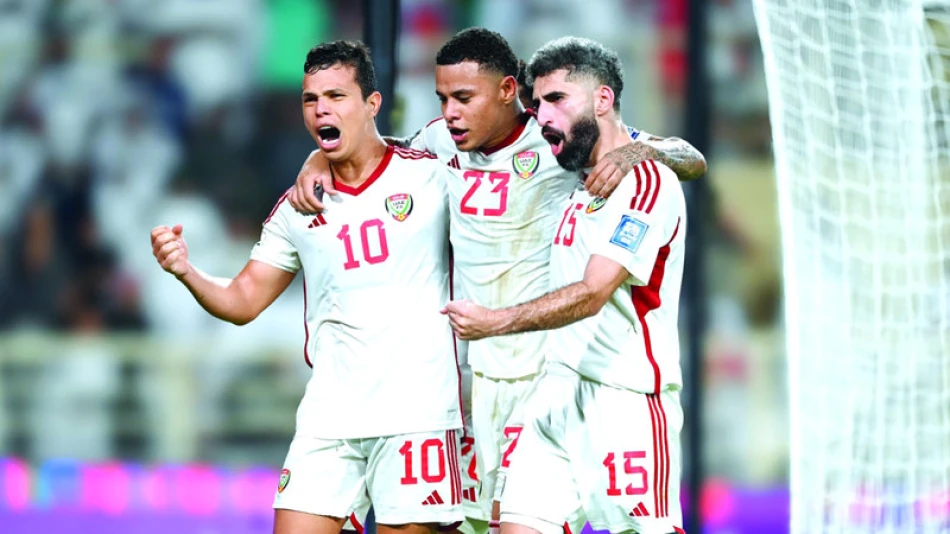
Five Debutants Bolster National Team's World Cup Playoff Roster
UAE National Team Undergoes Major Squad Overhaul Ahead of Crucial World Cup Qualifiers
The UAE national football team has announced significant changes to its squad composition as Romanian coach Cosmin Contra prepares his side for a make-or-break World Cup qualifying playoff. With five new faces joining the 29-man roster for an Austrian training camp, the Whites are banking on fresh talent and tactical flexibility to secure their place in the 2026 FIFA World Cup.
Strategic Squad Refresh Signals New Direction
Coach Cosmin Contra's decision to introduce five uncapped players represents more than routine squad rotation—it reflects a calculated gamble on emerging domestic talent. The new additions include Robin Philip (Al Wahda), Nicolas Jimenez (Al Wasl), Gaston Suarez (Shabab Al Ahli), Richard O'Connor (Al Jazira), and Eric de Menezes (Al Ain), all of whom have impressed at club level in recent months.
This injection of fresh blood comes at a critical juncture, with the UAE facing Oman and Qatar on October 11 and 14 respectively in playoff matches that will determine their World Cup fate. The timing suggests Contra believes the established core needed reinforcement rather than wholesale changes.
Disciplinary Actions Send Clear Message
Perhaps more telling than the new inclusions are the notable exclusions. Khalid Al Dhanhani and Sultan Adel have been dropped following disciplinary action after leaving the team's previous Abu Dhabi training camp without permission. This decisive move demonstrates Contra's unwillingness to compromise on professional standards, even with crucial matches approaching.
The message is clear: individual talent cannot override team discipline, particularly when national pride and World Cup qualification hang in the balance.
Tactical Implications and Formation Flexibility
Technical analyst Khalid Obaid highlighted Nicolas Jimenez as a particularly significant addition, noting his potential to strengthen the midfield alongside established players like Abdullah Ramadan. This suggests Contra may be looking to enhance the team's creative options in central areas—a traditionally weak point for UAE sides in high-pressure qualification scenarios.
The return of goalkeeper Mohamed Adli and midfielder Mackenzie Hunt adds experienced depth to key positions, providing Contra with proven alternatives should his first-choice players falter under pressure.
Regional Context and World Cup Ambitions
The UAE's qualification pathway reflects the increasingly competitive nature of Asian football. Unlike previous World Cup cycles where Gulf nations could rely on predictable hierarchies, the expanded 2026 tournament format has intensified competition across the region.
Qatar's recent World Cup hosting experience and Oman's steady improvement under their technical development programs mean the UAE cannot assume superiority based on historical precedent. The Austrian training camp represents a crucial preparation period where tactical cohesion must be achieved quickly.
High-Stakes Gamble on Domestic Development
By promoting five domestic league standouts, Contra is essentially betting that UAE Pro League standards have improved sufficiently to produce World Cup-caliber talent. This approach mirrors successful models in countries like Japan and South Korea, where consistent domestic league investment eventually translated into international success.
The success or failure of this strategy will be measured not just in October's results, but in whether these new players can handle the psychological pressure of representing their nation in winner-takes-all qualification matches. For UAE football, the stakes extend beyond mere World Cup participation—they represent validation of the country's long-term football development strategy.
Most Viewed News

 Sara Khaled
Sara Khaled






